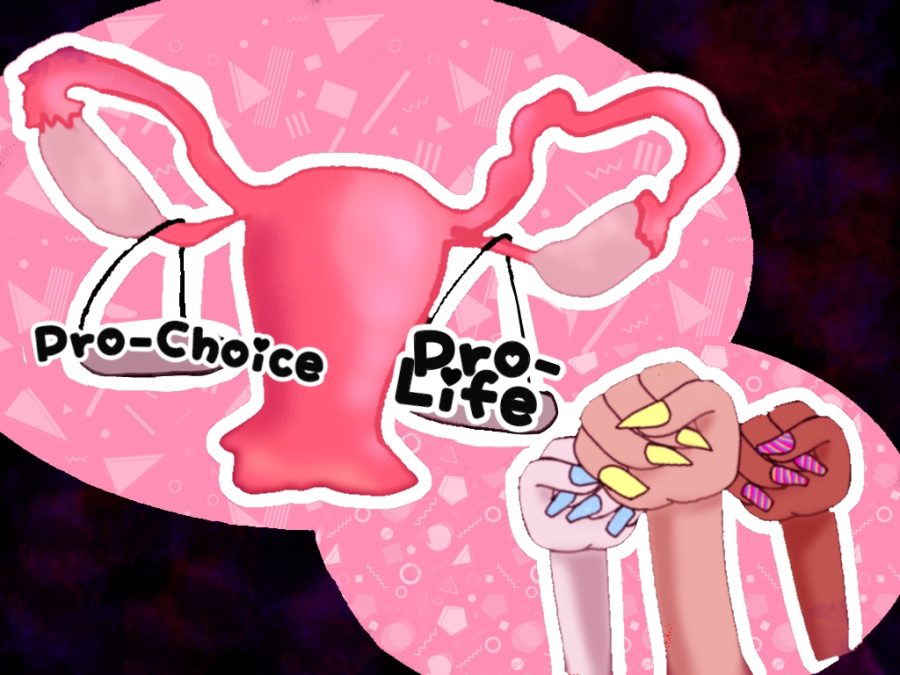Post-Roe: A War on Women
October 1, 2022
If a gynecologist were to examine any uterus in the United States, they would find the Supreme Court implanted inside. It seems as though all uteruses are a matter of the government, not a matter of a woman’s body anymore. Roe v. Wade began as a widely-accepted decision by the Supreme Court, dismissing the Texas statute that banned abortion rights based on the rationale that abortion was protected by the right to privacy in the 14th Amendment. However, after the Dobbs v. Jackson’s case in 2022, Roe was overturned.
Following the Supreme Court’s decision, states have been enforcing their stance on abortion rights by banning or restricting the procedure. In at least 12 states, abortions have been completely banned, and in two states, abortions are allowed only in the first six weeks of pregnancy, which is before many women even realize that they’re pregnant. Ultimately, some states and the U.S. government are working in cahoots to limit or block a woman’s right to an abortion. The overturning of Roe v. Wade becomes a struggle for abortion rights, freedom, and equality under the law; it has become a war on women.
The American College of Obstetricians and Gynecologists explains that the government is “punishing or penalizing of individuals for actions that are interpreted as harmful to their own pregnancies, including enforcement of laws that punish actions during pregnancy that would not otherwise be criminal or punishable.”
This rationale enables the government to criminalize any unwanted pregnancy outcomes, like stillbirths and miscarriages; accomplices, people helping others get an abortion, will be criminalized. Thus making it apparent that any bodily autonomy once held over their feminine reproductive rights has been stripped away by the hands of the Supreme Court.
Furthermore, the landmark decision sets a bad precedent for any decision made by the due process clause under the 14th Amendment. Griswold, Lawrence, and Obergefell, rulings that ensure access to contraceptives, right to engage in private and consensual sexual acts, and same-sex marriages, can be overtuned like Roe for the same reason.
Supreme Court Justice Clarence Thomas, who voted against Roe v. Wade, made it clear in his concurring opinion that the right to gay marriage and contraceptive rights were “demonstrably erroneous decisions.”
The right to be able to love whomever you want and the right to contraceptives should not be decided by people who are not directly affected by these policies. Forcing their beliefs on people just because they don’t agree with them is unfair to the people who are affected.
With more than 60% of Americans supporting abortion rights and over half a million households of same-sex couples in the U.S., the overturning of Roe attests to how the Court blatantly ignores the voices of people.
We, as the younger generations, are terrified of the stripping of feminine reproductive rights for our futures and the futures of generations to come. Through a united front, those who oppose the overturning of Roe v. Wade must educate the public of the dangers of this repeal and protest the Supreme Court for such an action. Now more than ever, we need conscious voters and as we, the younger generation, reach the legal voting age. We need to be the agents of change that we wish.
The Supreme Court’s decision to overturn Roe v. Wade is nothing less than an attack on feminine reproductive rights. Who does it not affect? The heterosexual, cis-males in the Supreme Court.
As we enter a Post-Roe America, what side will you defend: a woman’s rights to her own body, or the Supreme Court’s rights to her body?

